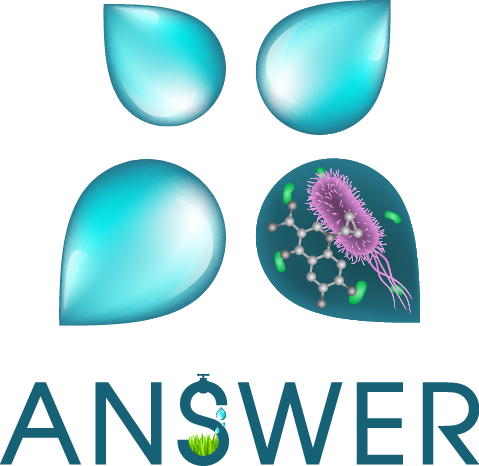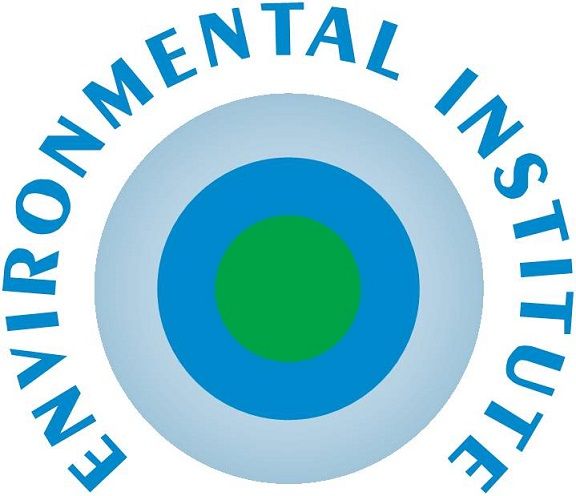ANSWER – Antibiotics and mobile resistance elements in wastewater reuse applications: risks and innovative solutions (H2020-MSCA-ITN-2015).

Countries: Austria, Cyprus, Germany, Israel, Italy, the Netherlands, Portugal, Slovakia, Spain
Client/Funding: HORIZON 2020 / Marie Skłodowska-Curie grant agreement No. 675530
Duration: 2015-2019
ANSWER is a consortium of high profile universities, research institutions and companies located in Austria, Cyprus, Germany, Israel, Italy, the Netherlands, Portugal, Slovakia and Spain.
The main objective is to develop well-trained and scientifically-creative Early-Stage Researchers (ESRs) through innovative PhD projects to unravel the highly complex factors driving antibiotics and antibiotic-resistant bacteria and antibiotic resistance genes (A&ARB&ARG) propagation in the framework of urban wastewater reuse, in order to assess the relevant environmental/public health risks, able to face current and future challenges and to convert knowledge and ideas into products and services for economic and social benefit.
Scientific Research Objectives
- To provide a solid approach for effect analysis concerning wastewater reuse in a European regulatory and monitoring context;
- To develop novel multidisciplinary approaches/techniques to enhance the diagnostic, mitigation and prevention capacity of antibiotics and antibiotic-resistant bacteria and antibiotic resistance genes (A&ARB&ARG) propagation, with cost-efficiency and wide applicability;
- To integrate all of the empirical data into a web-based database which will allow for:
- Automated prioritisation of chemical/biological risk factors;
- Use of the data in models for large-scale projections;
- Interpretation by ANSWER internal and external stakeholders for future policy development;
- Science-based emission limits values (ELVs) for antibiotics and their transformation products (TPs) and antibiotic-resistant bacteria and antibiotic resistance genes (ARB&ARG) in treated wastewater.
Scientific Training Objectives
- State-of-the-art of wastewater, soil and plant-associated microbiology, with emphasis on the innovative diagnosis of antibiotics and antibiotic-resistant bacteria and antibiotic resistance genes (A&ARB&ARG);
- Comprehensive understanding of horizontal gene transfer dynamics in environmental microbiome as correlated to different wastewater treatments and environmental conditions;
- Novel endpoints using advanced bioassays that can be applied to assess the effects that antibiotics and their transformation products (TPs) resulting from conventional/innovative treatment may induce in the environment;
- Assessment of transformation products (TPs) of antibiotics formed during the oxidative treatment of the wastewater for their capacity to select antibiotic resistance (AR) in the environment.
One of the ESR participating in "ANSWER" ITN is Nikiforos Alygizakis (ESR15) who conducts his scientific work at Environmental Institute.

Nikiforos Alygizakis holds a B.Sc. in Chemistry and a M.Sc. in Chemical Analysis and Quality Control awarded by the University of Athens. His B.Sc. was funded by Athens University Legacy Foundation (Antonios Papadakis Legacy) and his M.Sc. by John S. Latsis Foundation. During his studies, he developed both analytical and programming skills. He is experienced in many sample preparation and instrumental techniques as well as programming, mainly using R language. He was trained on testing the quality of medicines during his four-month internship at the National Organization for Medicines of Greece. Moreover, he joined Prof. Thomaidis’ research team at the University of Athens, where he worked on sewage epidemiology field. He participated in many collaborative trials (COST action ES1307) and employed LC-QqQ to determine drugs of abuse and pharmaceuticals including many of their transformation products in different matrices. During his master thesis, he conducted research using state-of-the-art analytical equipment (LC-QTOF) and cutting-edge data processing tools to detect compounds with high fluctuation among replicated time-series wastewater samples and identify them using non-target strategies. His research interests are focused on treatment of LC-HRMS data, prioritization methodologies and non-target screening. Currently he is a Ph.D. Candidate to University of Athens and a Marie Curie Early-Stage Researcher at the ANSWER Project, and his work is based on the development of advanced methods for the identification and risk assessment of antibiotics and their transformation products in wastewater.
For more information http://www.answer-itn.eu/
